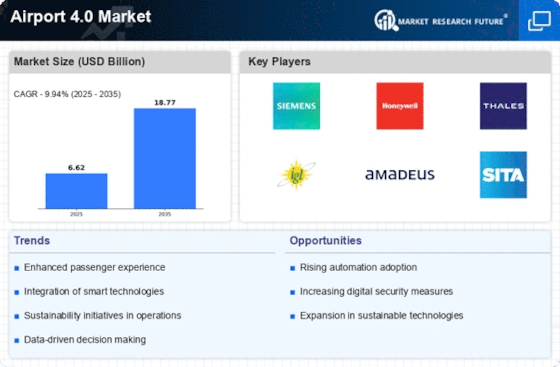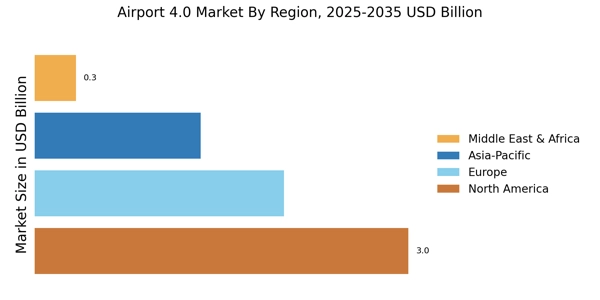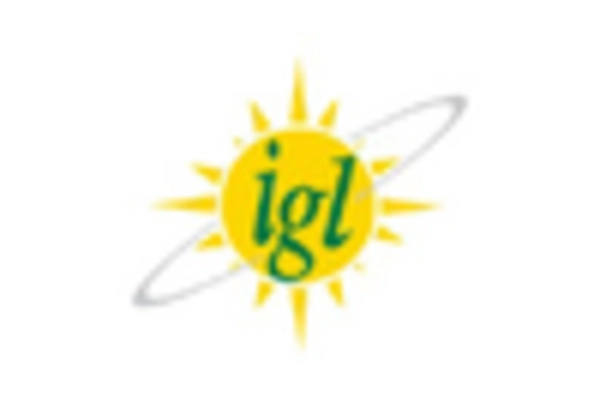Rise of Digitalization in Airports
The Airport 4.0 Market is experiencing a notable rise in digitalization, driven by the increasing demand for seamless passenger experiences. Airports are adopting advanced technologies such as biometrics, artificial intelligence, and the Internet of Things to enhance operational efficiency. According to recent data, the implementation of digital solutions can reduce passenger processing times by up to 30%, thereby improving overall satisfaction. This trend indicates a shift towards a more integrated and automated airport environment, where digital tools facilitate real-time data sharing and decision-making. As airports continue to evolve, the emphasis on digital transformation is likely to shape the future landscape of the Airport 4.0 Market.
Growing Emphasis on Passenger Experience
In the Airport 4.0 Market, there is a growing emphasis on enhancing passenger experience, which is becoming a critical driver for innovation. Airports are increasingly focusing on creating user-friendly environments that prioritize comfort and convenience. This includes the development of smart lounges, automated check-in processes, and personalized services powered by data analytics. Research indicates that airports investing in passenger experience improvements can see a 20% increase in customer satisfaction scores. As competition intensifies among airports, the drive to provide exceptional experiences is likely to propel advancements in the Airport 4.0 Market.
Collaboration Among Industry Stakeholders
Collaboration among industry stakeholders is increasingly recognized as a vital driver in the Airport 4.0 Market. Airports, airlines, technology providers, and government agencies are working together to create integrated solutions that enhance operational efficiency and passenger experience. This collaborative approach facilitates the sharing of data and resources, leading to more informed decision-making. Evidence suggests that partnerships can lead to cost reductions of up to 15% in operational expenditures. As the industry moves towards a more interconnected framework, the emphasis on collaboration is likely to play a significant role in shaping the future of the Airport 4.0 Market.
Integration of Advanced Security Solutions
The integration of advanced security solutions is a crucial driver in the Airport 4.0 Market, as safety remains a top priority for airports worldwide. The adoption of technologies such as facial recognition, machine learning, and automated screening systems is transforming security protocols. These innovations not only enhance security measures but also streamline the passenger flow, reducing wait times. Recent statistics indicate that airports implementing these advanced security solutions can improve throughput by 25%. As security threats evolve, the continuous enhancement of security technologies will be essential for maintaining safety and efficiency in the Airport 4.0 Market.
Sustainability Initiatives and Green Technologies
Sustainability initiatives are emerging as a pivotal driver in the Airport 4.0 Market, as stakeholders recognize the importance of reducing environmental impact. Airports are increasingly adopting green technologies, such as solar energy systems and electric ground support equipment, to minimize their carbon footprint. Data suggests that airports implementing sustainable practices can achieve energy savings of up to 40%. This shift towards sustainability not only aligns with global environmental goals but also enhances the reputation of airports as responsible entities. Consequently, the focus on sustainability is likely to influence investment decisions and operational strategies within the Airport 4.0 Market.

















